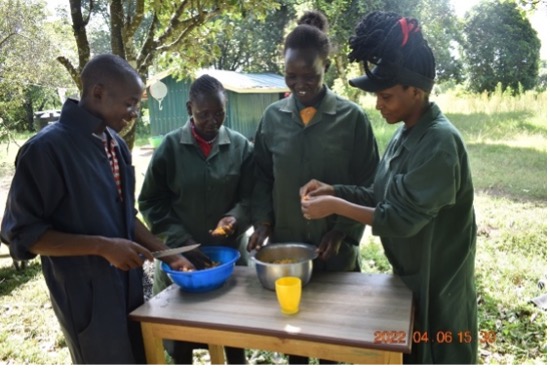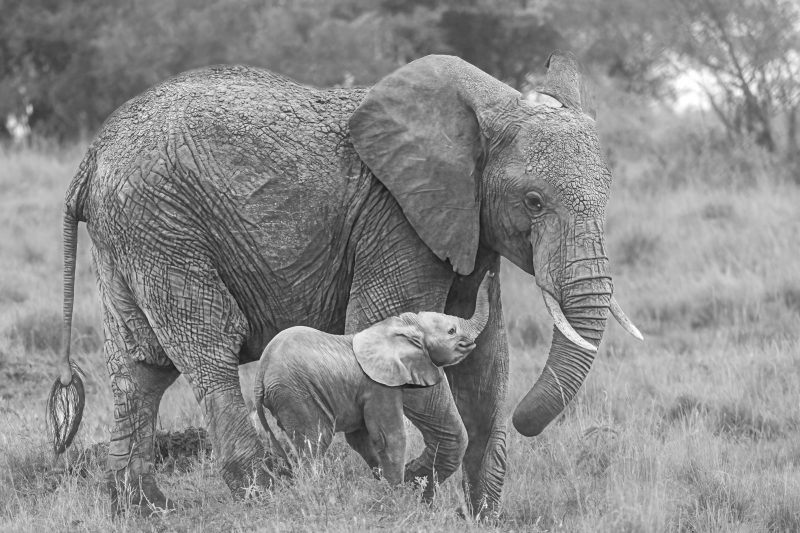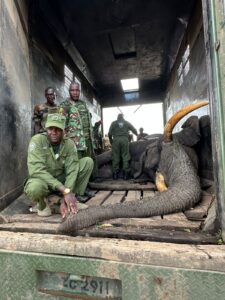The Mara Elephant Project leased helicopter is a critical tool for our organization, and in April, was key to many conservation and protection activities. On April 19, MEP CEO Marc Goss and Senior Warden Zakayo Lenaeku conducted an aerial patrol of the Mau Forest alongside government partner Kenya Forest Service. The aerial reconnaissance patrol allowed Marc and Zakayo to note locations of illegal logging and charcoal making sites and relay them to the MEP/Sheldrick Wildlife Trust (SWT) Mau De-Snaring Unit stationed on the ground. During the patrol, elephants were spotted inside the forest (like finding a needle in a haystack) and the team monitored the progress of the reclaimed areas of the forest. From the air, they determined less forest destruction in the reclaimed areas and these areas were showing healthy rejuvenation.
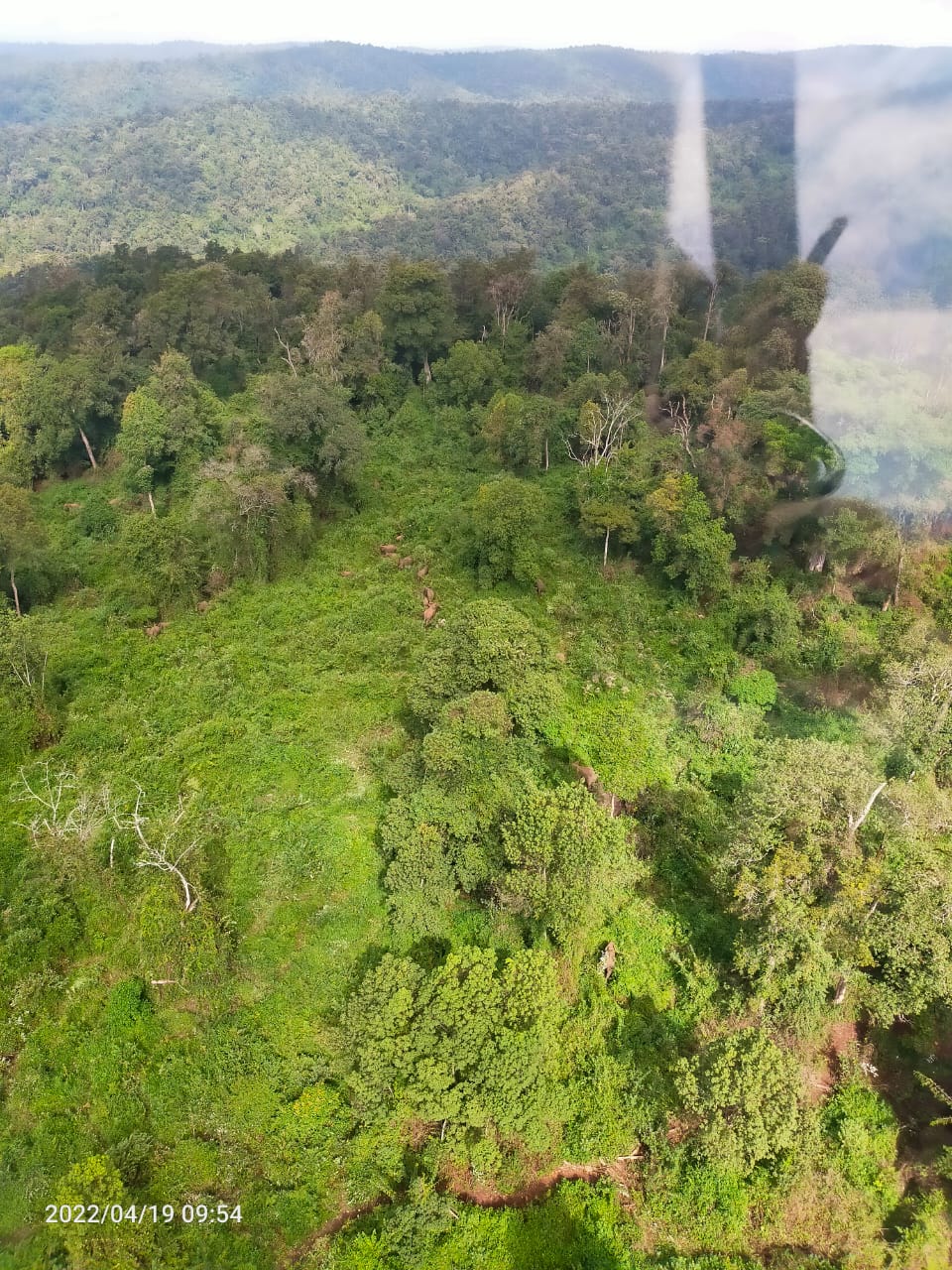

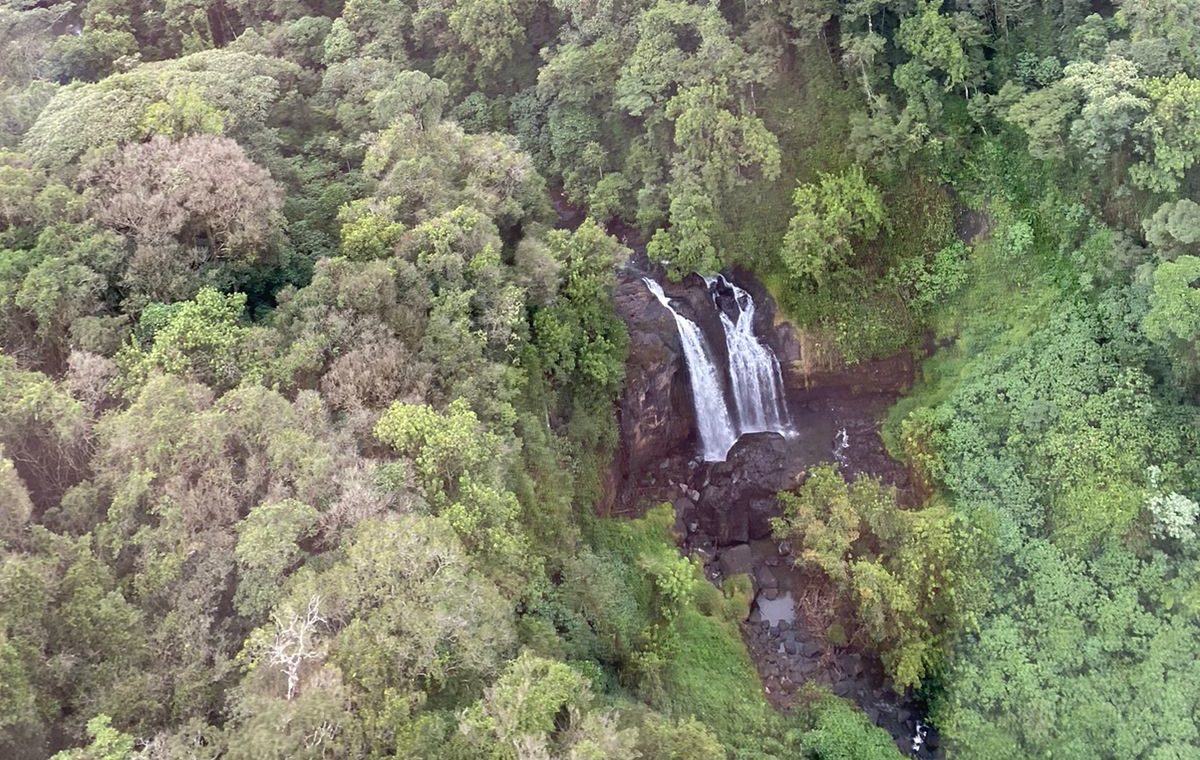
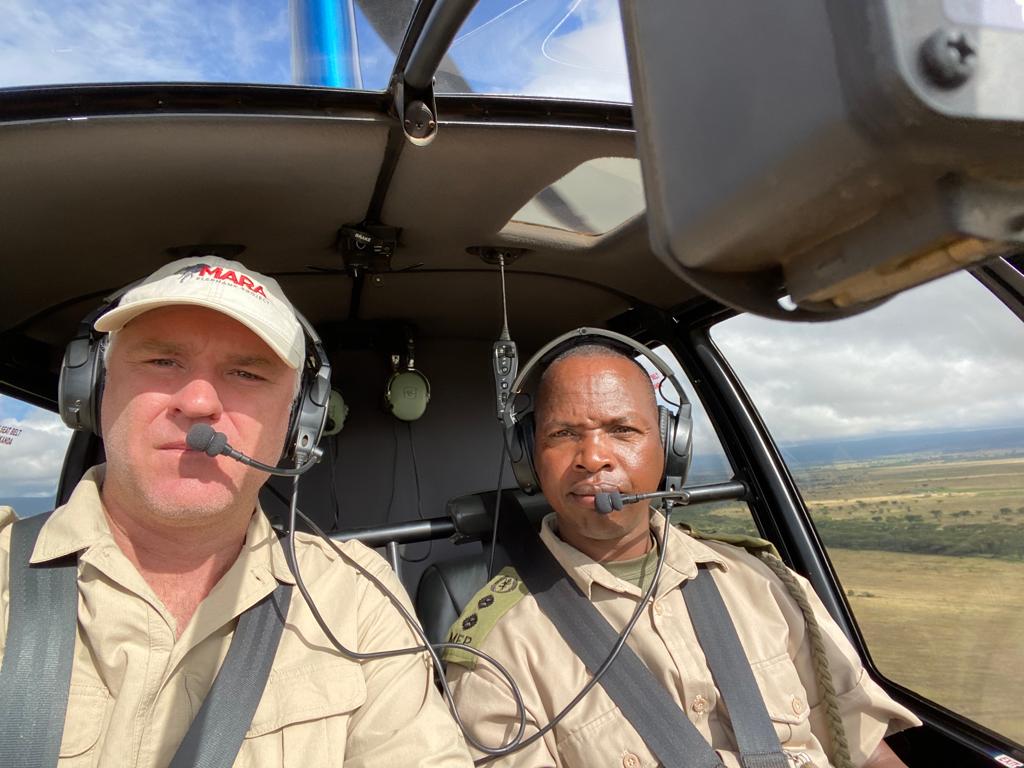
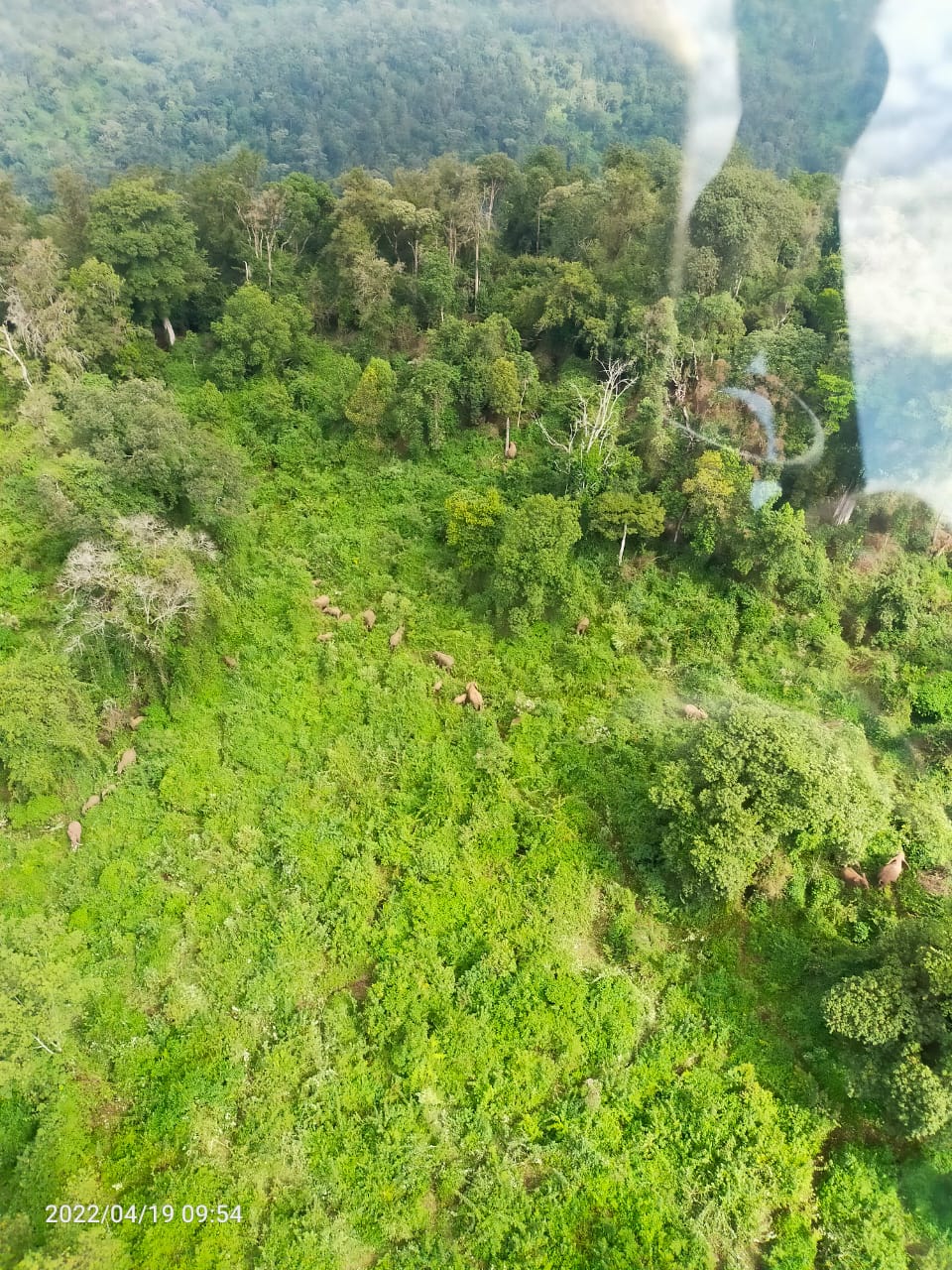
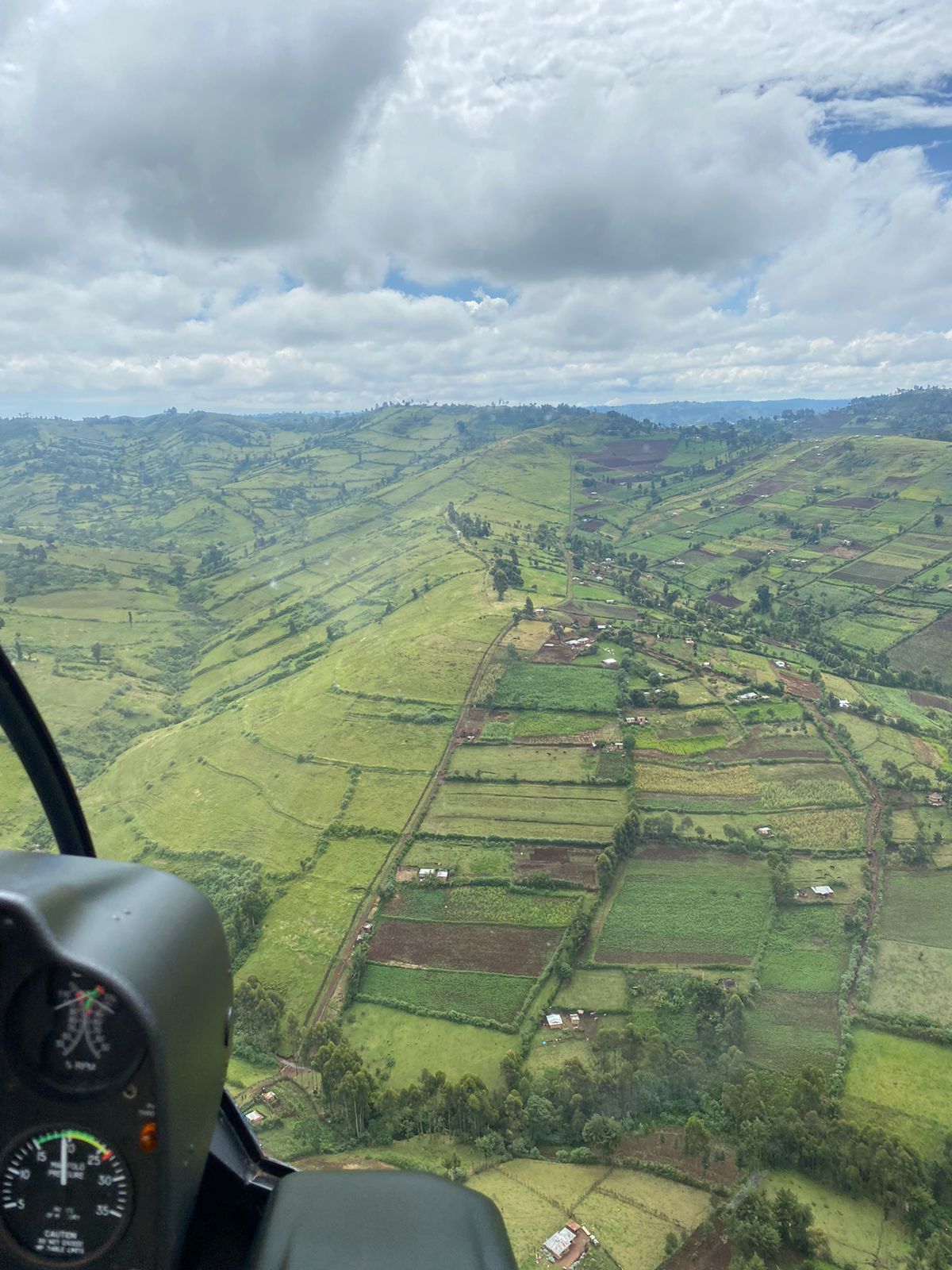
The helicopter was also used during a collaring operation in April, and there was some great footage captured from the GoPro360 camera.
Kenya Wildlife Service (KWS), Wildlife Research and Training Institute (WRTI) and MEP re-collared Matali on April 22 not far from MEP’s headquarters. Matali is a bull elephant that was originally collared in May 2020 after being translocated by KWS from Kajiado County, not far from Nairobi. He is an important elephant to re-collar because his movements allow MEP rangers to react to conflict quickly and effectively in an area with growing infrastructure development. Additionally, his movements help KWS, WRTI and MEP better understand the connectivity from the Rift Valley and Mosiro into the Maasai Mara. The KWS Vet Ephantus Ndambiri assisted by WRTI Wildlife Ecologists Stephen Ndambuki alongside MEP’s long-term monitoring (LTM) team made a successful collaring operation.
We had the pleasure of hosting our key partner WRTI for a visit at our headquarters in April, which allowed them to join for the collaring operation. MEP will be supporting WRTI’s efforts to setup EarthRanger as their data platform.

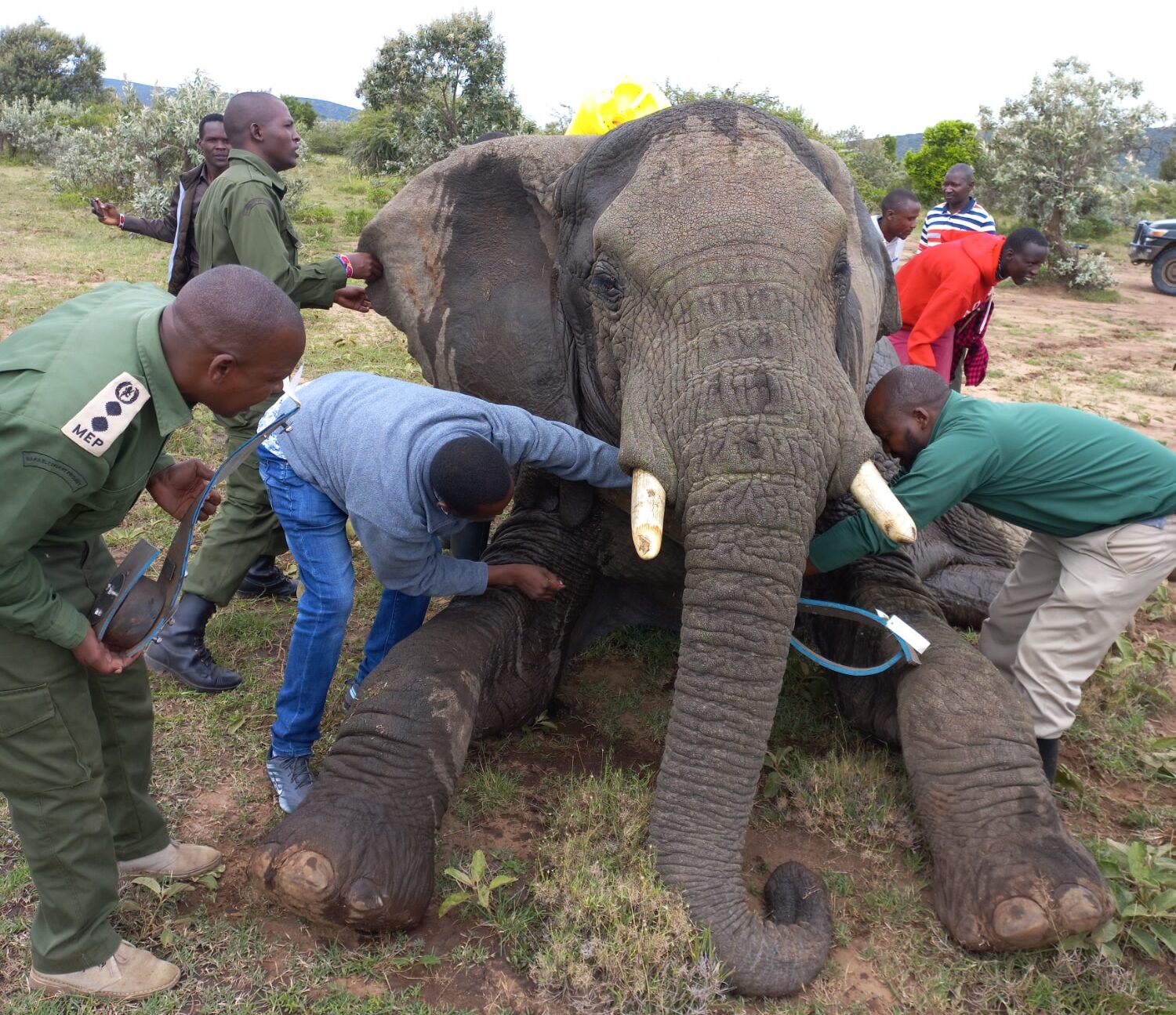
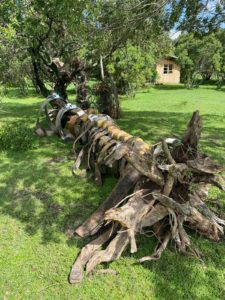 Additionally, we added a new collar display on campus that highlights the evolution of elephant collars over the last decade.
Additionally, we added a new collar display on campus that highlights the evolution of elephant collars over the last decade.
One of MEP’s most well-known collared bulls, Fred, is in musth, and he’s been very busy over the last month. The MEP long-term monitoring (LTM) team spotted Fred recently in Mara North and Lemek conservancies with several female individuals the team is researching. When male elephants are in musth, which can last days or months depending on the available mates, they can become aggressive due to their raging hormones. Luckily Fred is used to our research vehicle and was peacefully allowing our LTM team to film him. During musth, bulls have a very distinct smell coming from urine discharged leaving a scent trail that both humans and elephants can smell. You can see in the video Fred’s impressive size compared to the female elephants, all the better for passing along strong elephant genes.
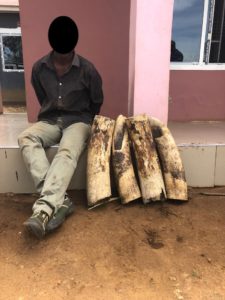 On April 14, the Tanzania National Parks Authority (TANAPA) arrested one suspect in possession of 34.46 kg of ivory (4 tusk pieces) based on MEP intelligence. Overall, in April, MEP rangers alongside government partners recovered 207 posts, one tree cut down, destroyed 12 kilns and three sacks, arrested four habitat destruction suspects, removed three snares and mitigated three conflict incidents.
On April 14, the Tanzania National Parks Authority (TANAPA) arrested one suspect in possession of 34.46 kg of ivory (4 tusk pieces) based on MEP intelligence. Overall, in April, MEP rangers alongside government partners recovered 207 posts, one tree cut down, destroyed 12 kilns and three sacks, arrested four habitat destruction suspects, removed three snares and mitigated three conflict incidents.
MEP rangers and other core staff also participated in a training at headquarters. Drones are a low-cost solution to mitigate conflict and to conduct aerial reconnaissance and field research in the Maasai Mara. In late March, a drone training lead by Expert Drones East Africa took place on MEP’s campus covering a range of topics to understand how to safely and effectively operate drones in the field. We’re happy to say that MEP rangers and staff successfully graduated from the program and have received their remote pilots’ licenses. A portion of the drone training was supported by our long-time partner Elephant Cooperation.
The MEP “Bravo” ranger unit patrolling the Loita Forest alongside partner South Rift Association of Land Owners (SORALO). Over a two-day period in April the team started a foot patrol on the east side of the forest and moved west, stopping in the middle of the forest to make a fly camp and spend the night. Their patrol covered 47 km (29 miles) and ended at their base camp. In total in April, MEP rangers patrolled a distance of 1,172 km on foot, 10,936 km by car and 2,966, km on motorbike in the GME.
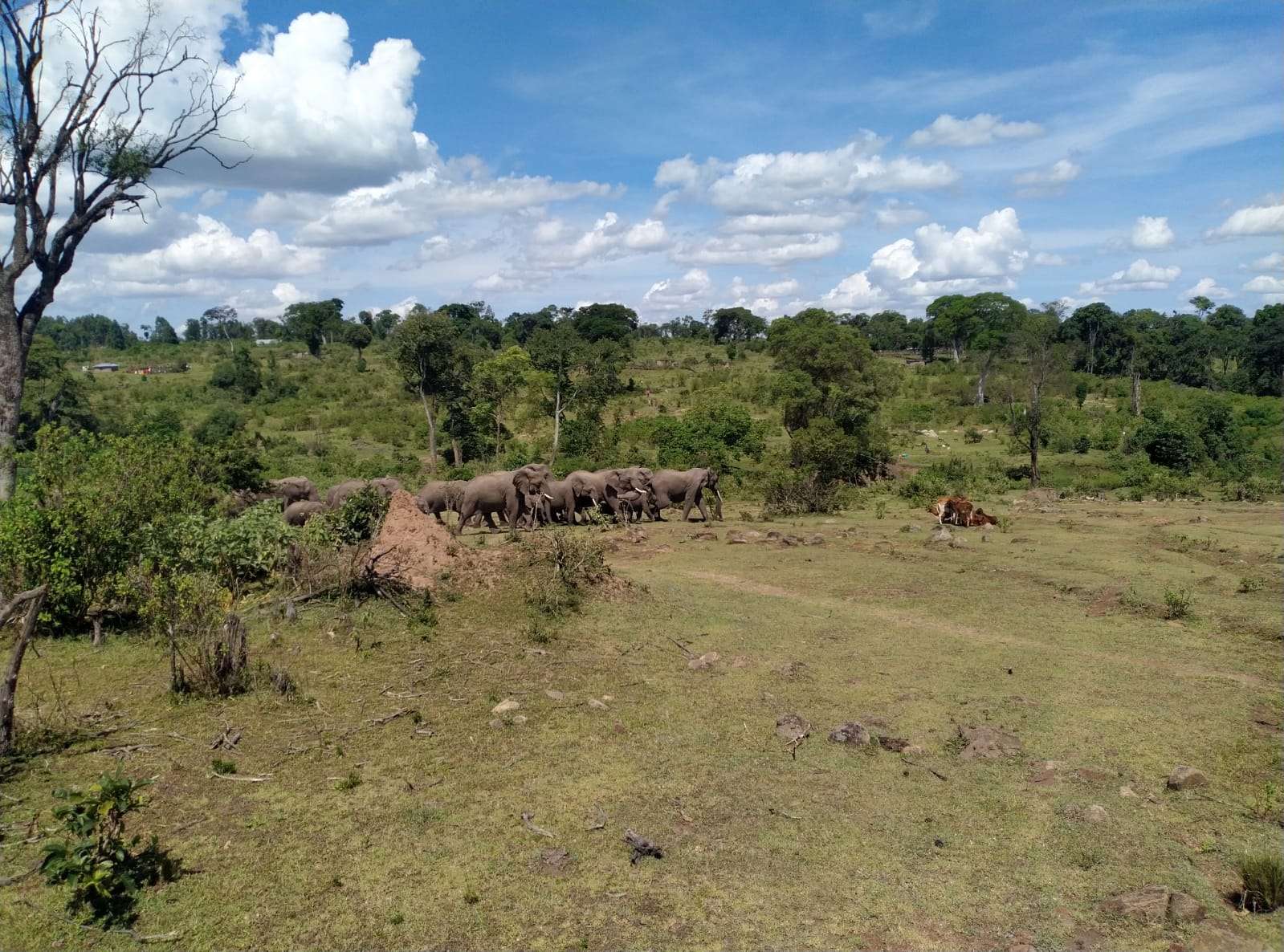
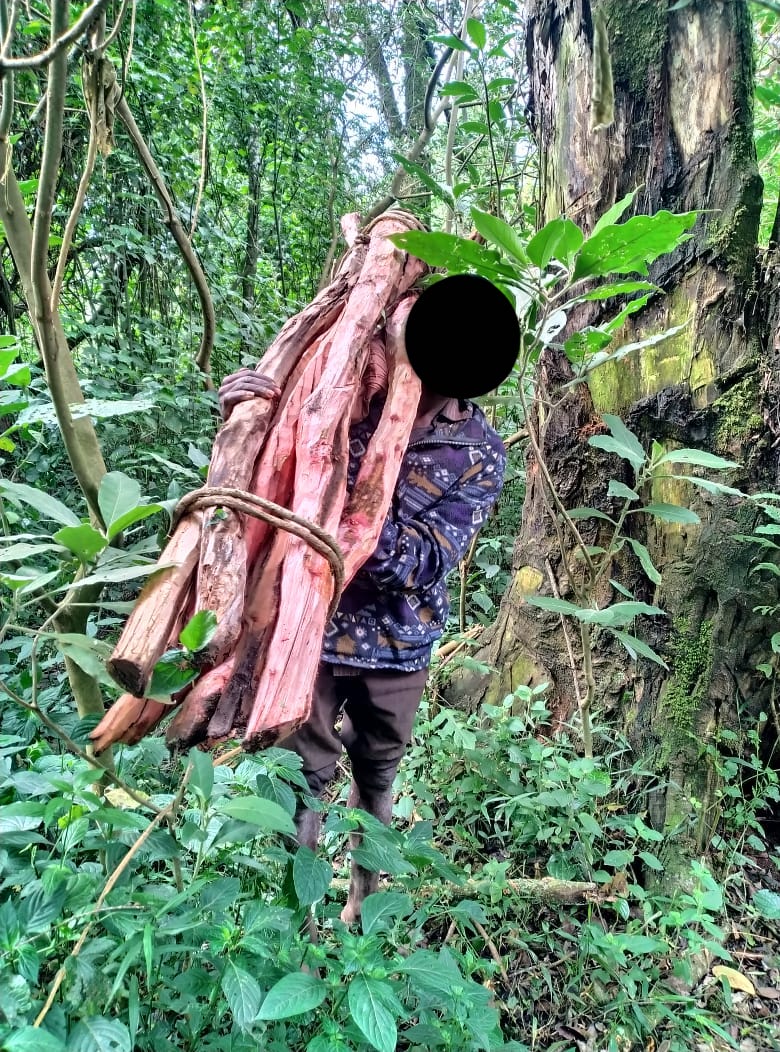
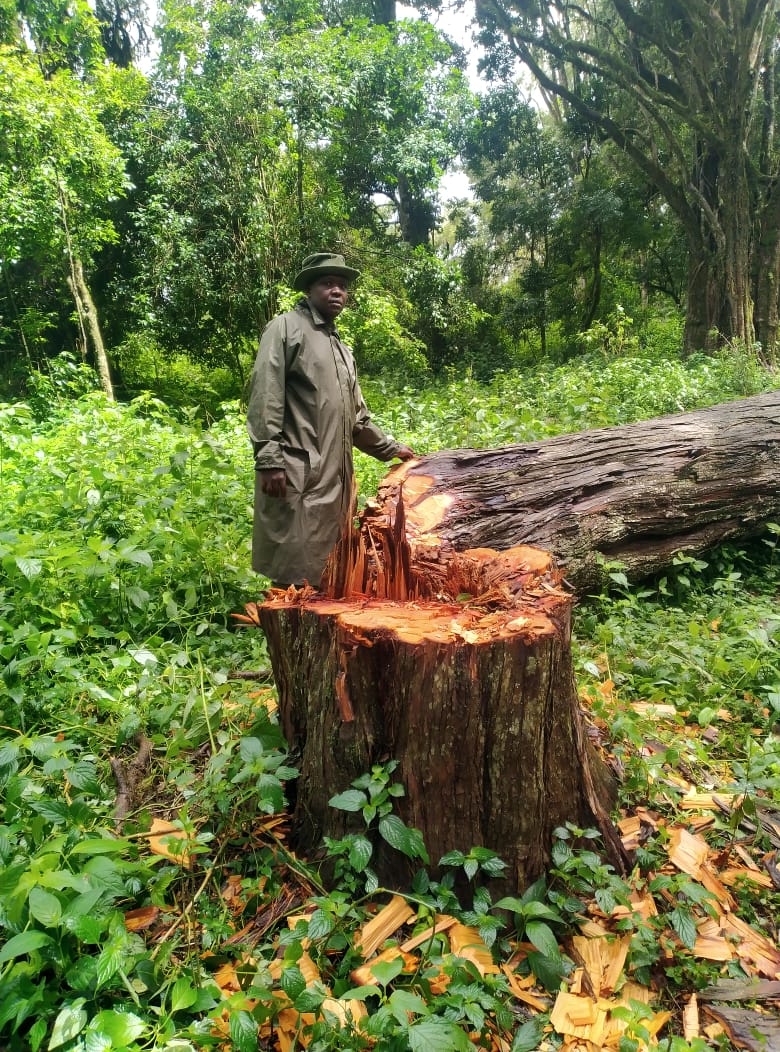
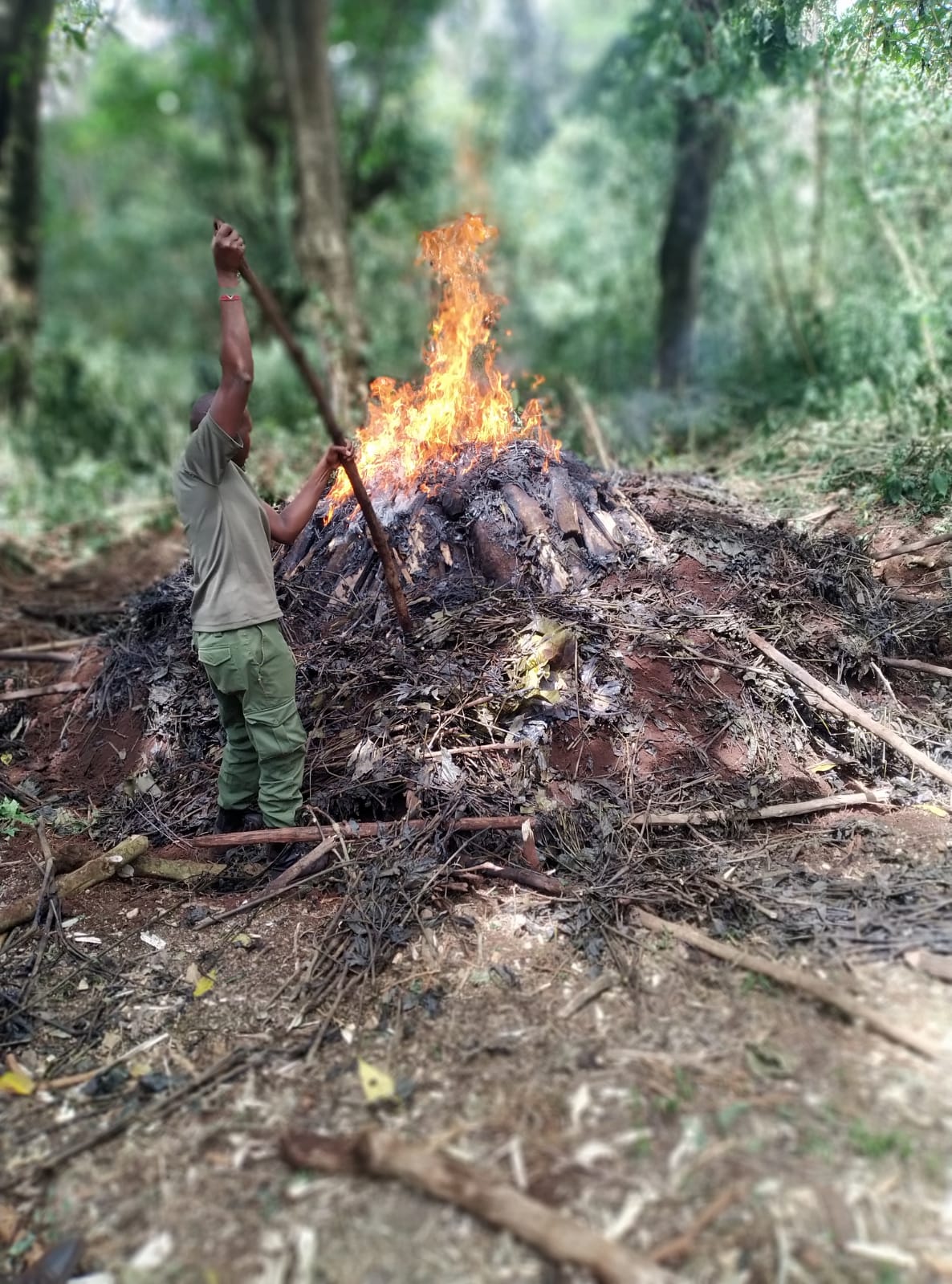
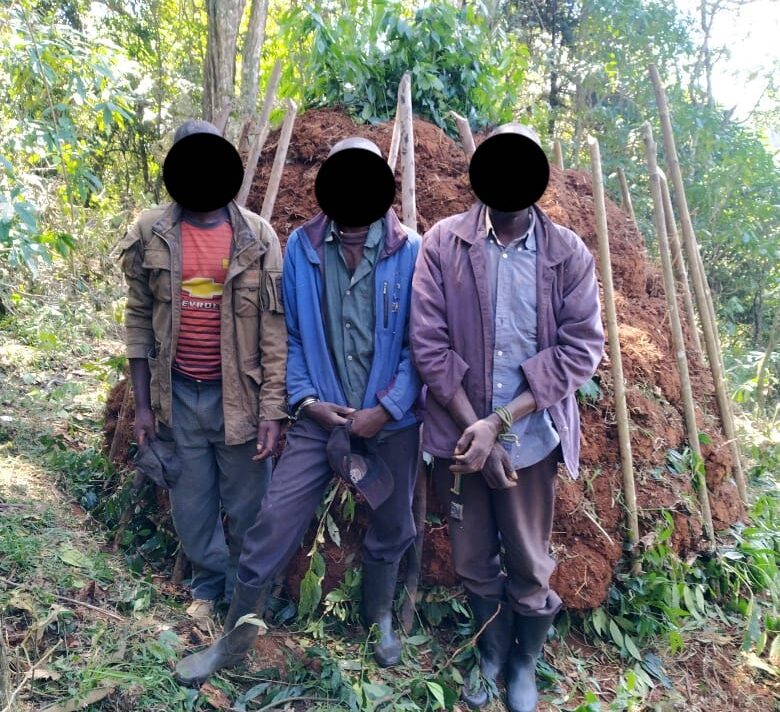
Catherine Villeneuve arrived in late April. She is doing an MSc at University of Laval in Quebec and is helping MEP to develop machine learning approaches for the analysis of movement data. She will also be contributing to MEP’s Ecoscope project, and her time at MEP is supported by AI2. The MEP Research Department made significant progress in extending Ecoscope and we now have a rich set of movement and environmental analysis tools to generate conservation and research outputs with. All of our field assistants are working on mapping fences, roads and landcover ground-truthing points using motorbikes and our TerraChart app. They recorded 162.4 km of fences and 46 LCC points in April.
We had some very exciting visitors in April to the MEP Experimental Farm, elephants. The farm is designed to test how palatable various crop types are to predators in the Mara, and since the launch in October 2021, we haven’t seen many elephants, mostly hippos, birds and monkeys. So, we were excited in April when elephants decided to visit for the first time. The elephants stopped by daily for a week and ate the maize (corn), one of their favorites, and even tested the ditch to access the maize in the middle, not gaining access. They did however gain access to the maize stepping right over the sunflower barrier to get to it. They also tried the sukuma (collard greens), but it appeared that they spit it out. They also raided the wheat, butternut squash, sweet potato vines, cucumbers and beans and uprooted and stomped on the chilies but didn’t appear to eat them.
You can see in these before and after photos how much damage an elephant can do to crops in a short amount of time. That’s why finding solutions for local communities to grow elephant friendly crops for food or to earn an income is an important objective for MEP to combat the co-existence crisis.
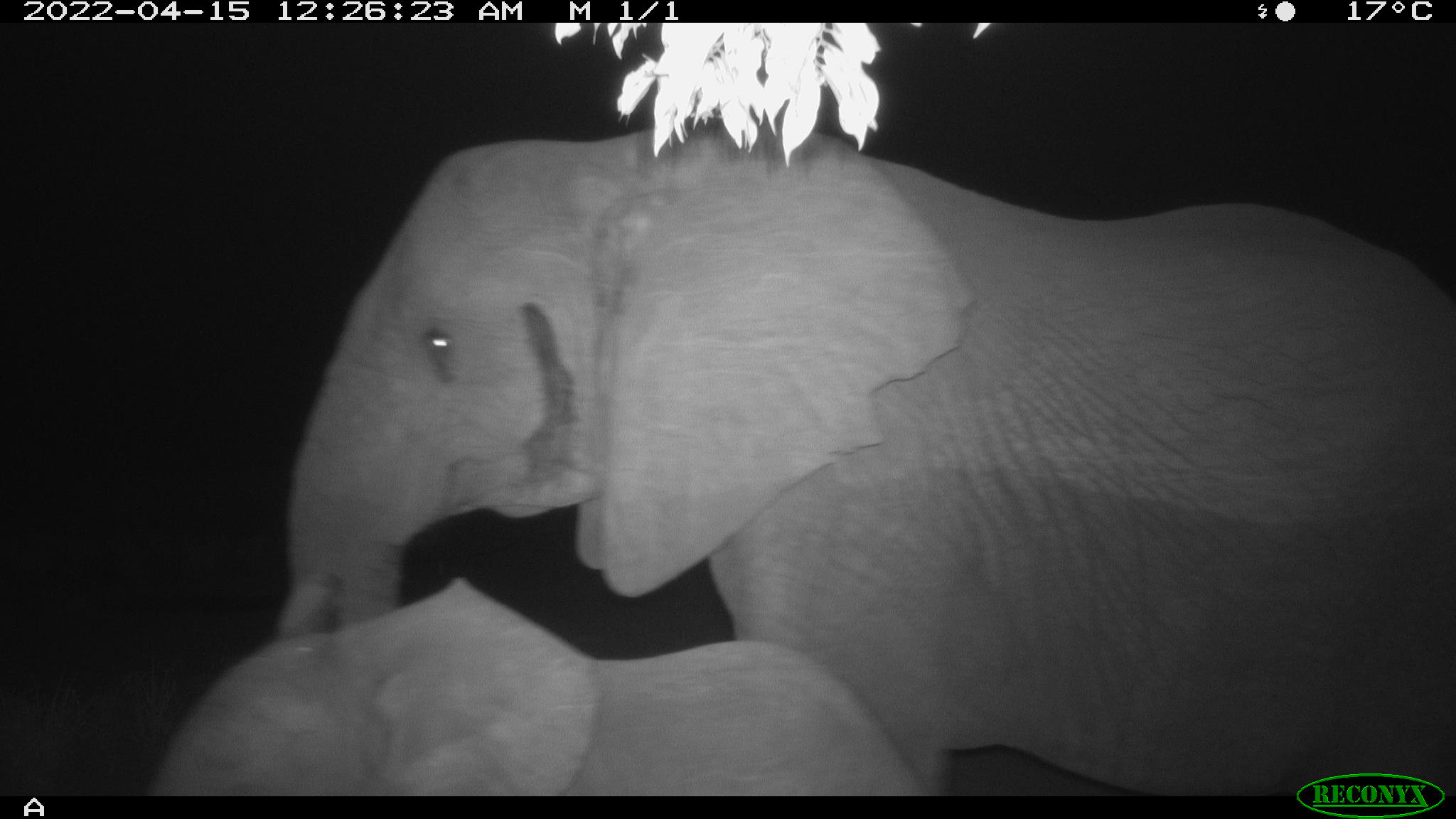
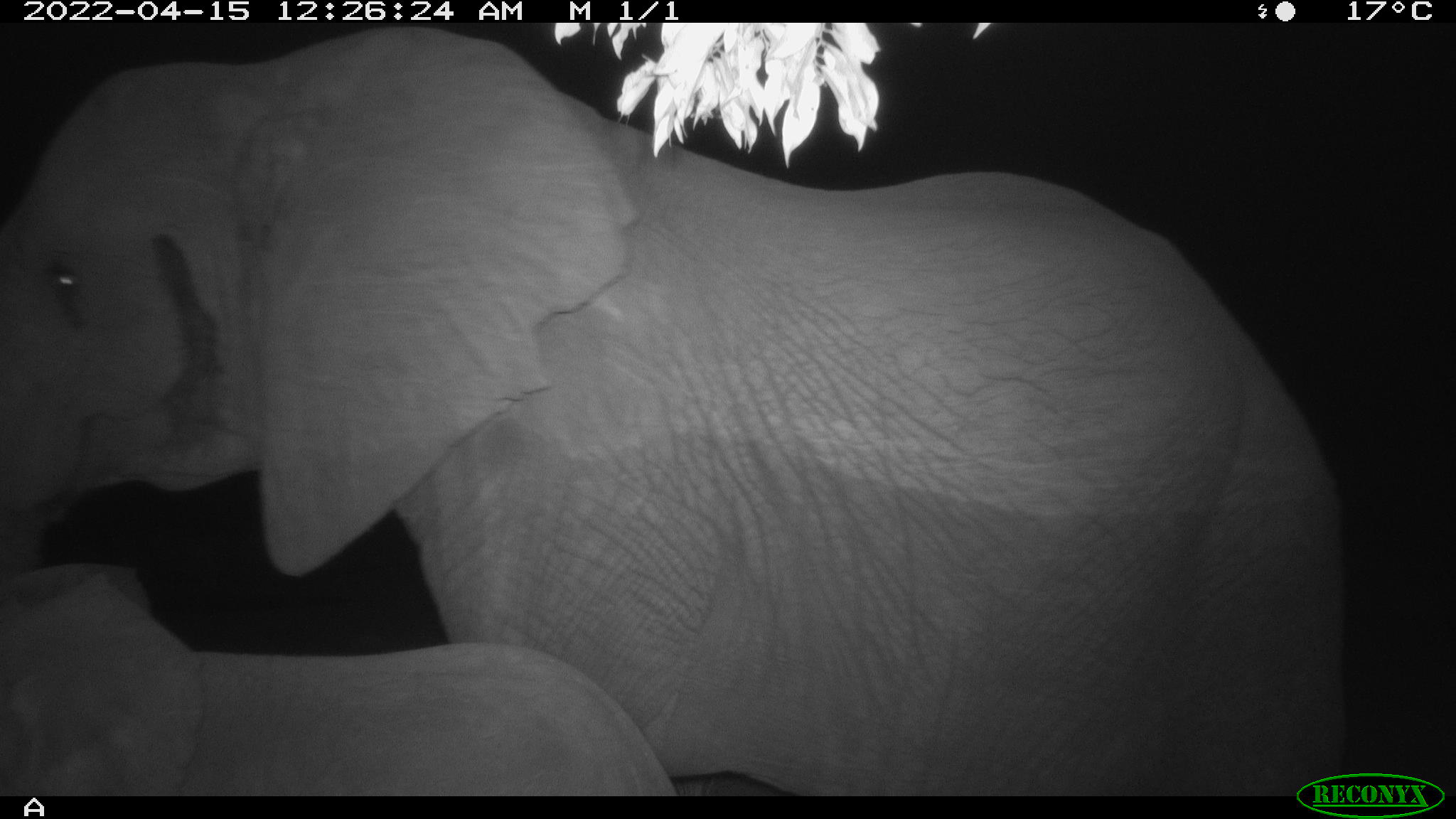
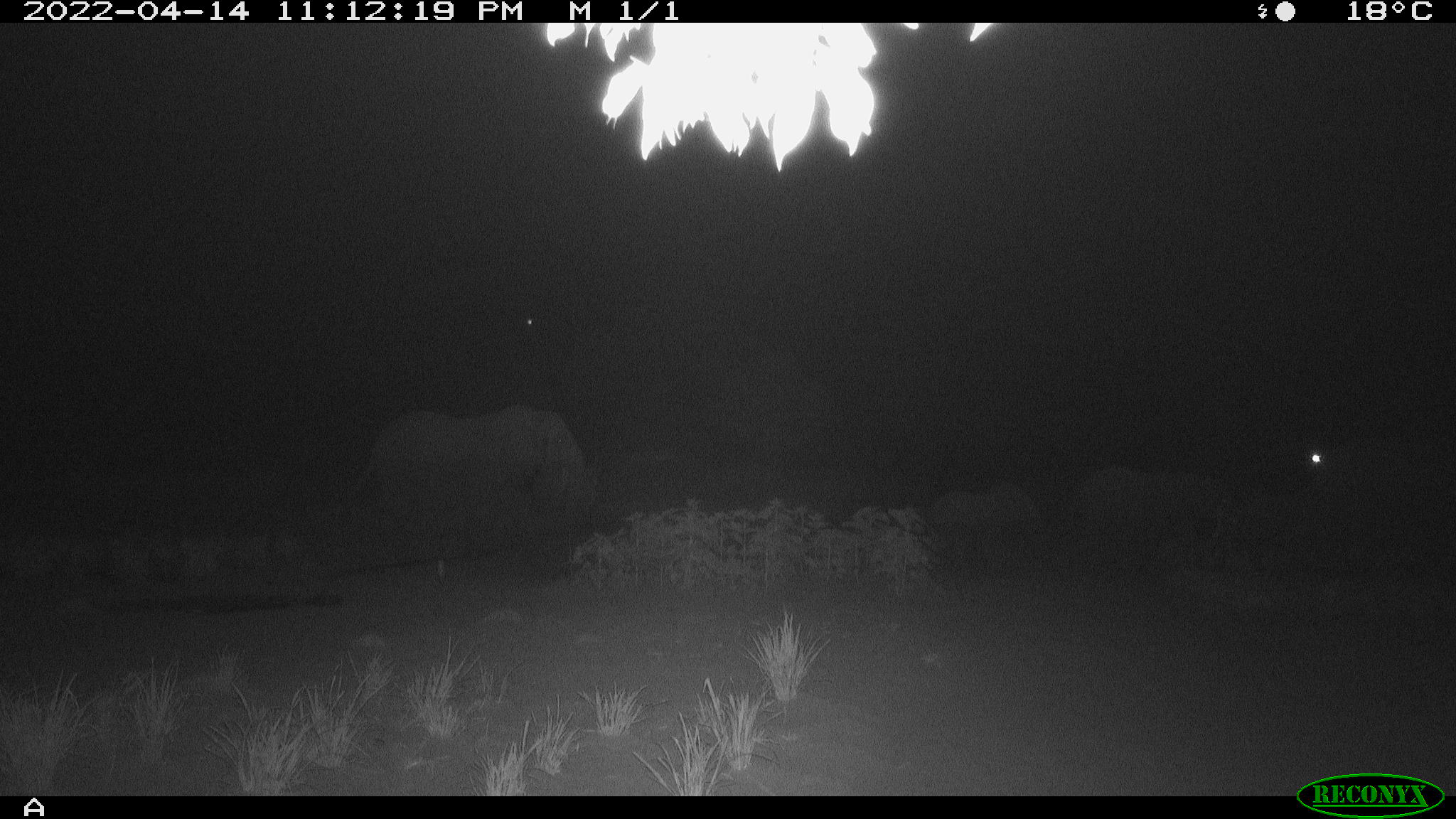

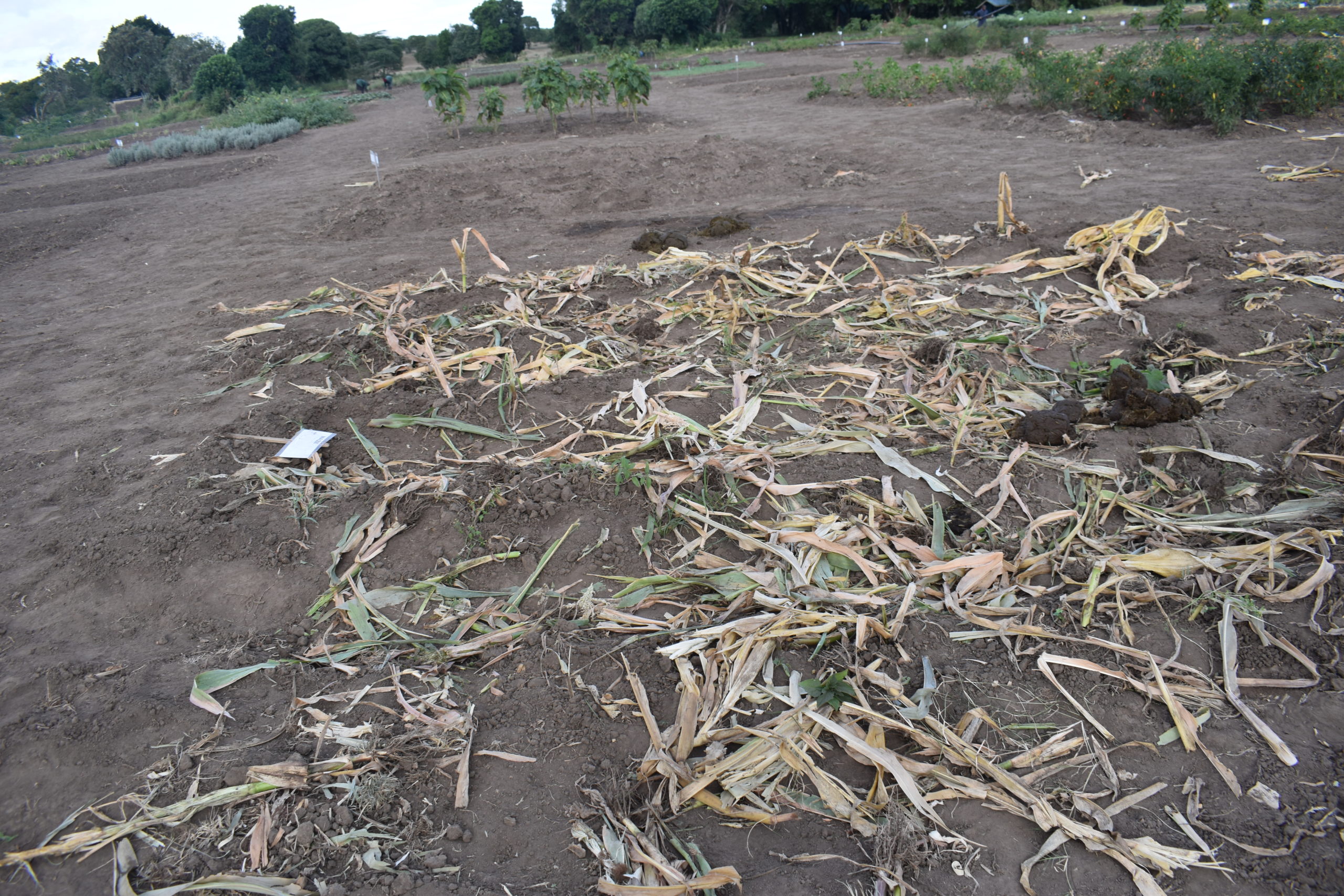

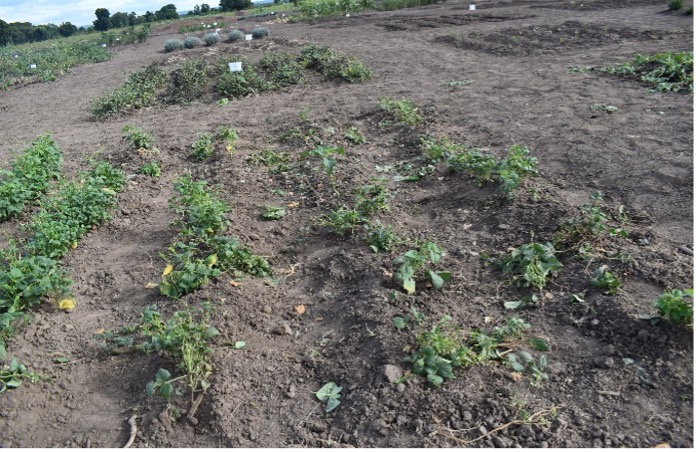

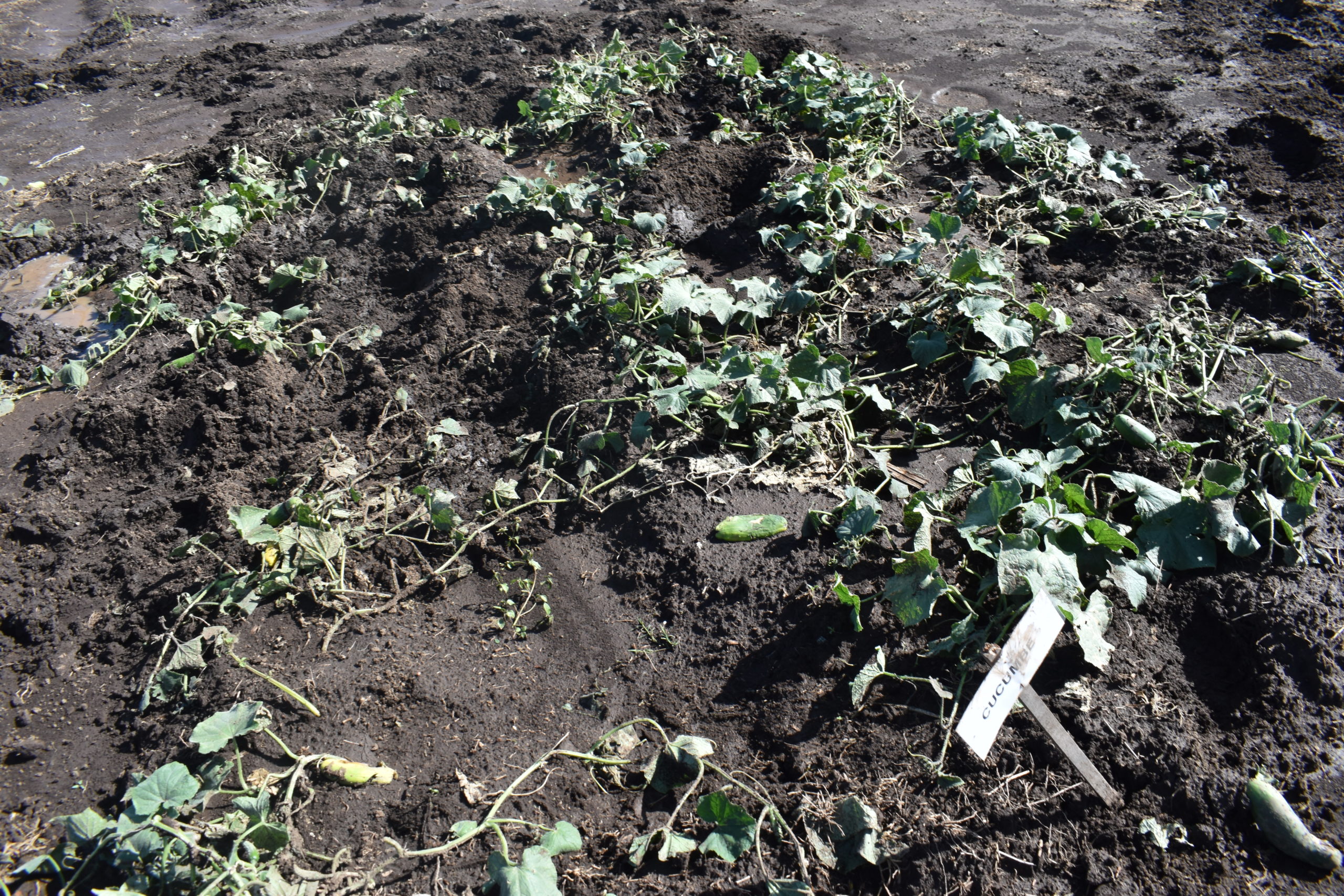
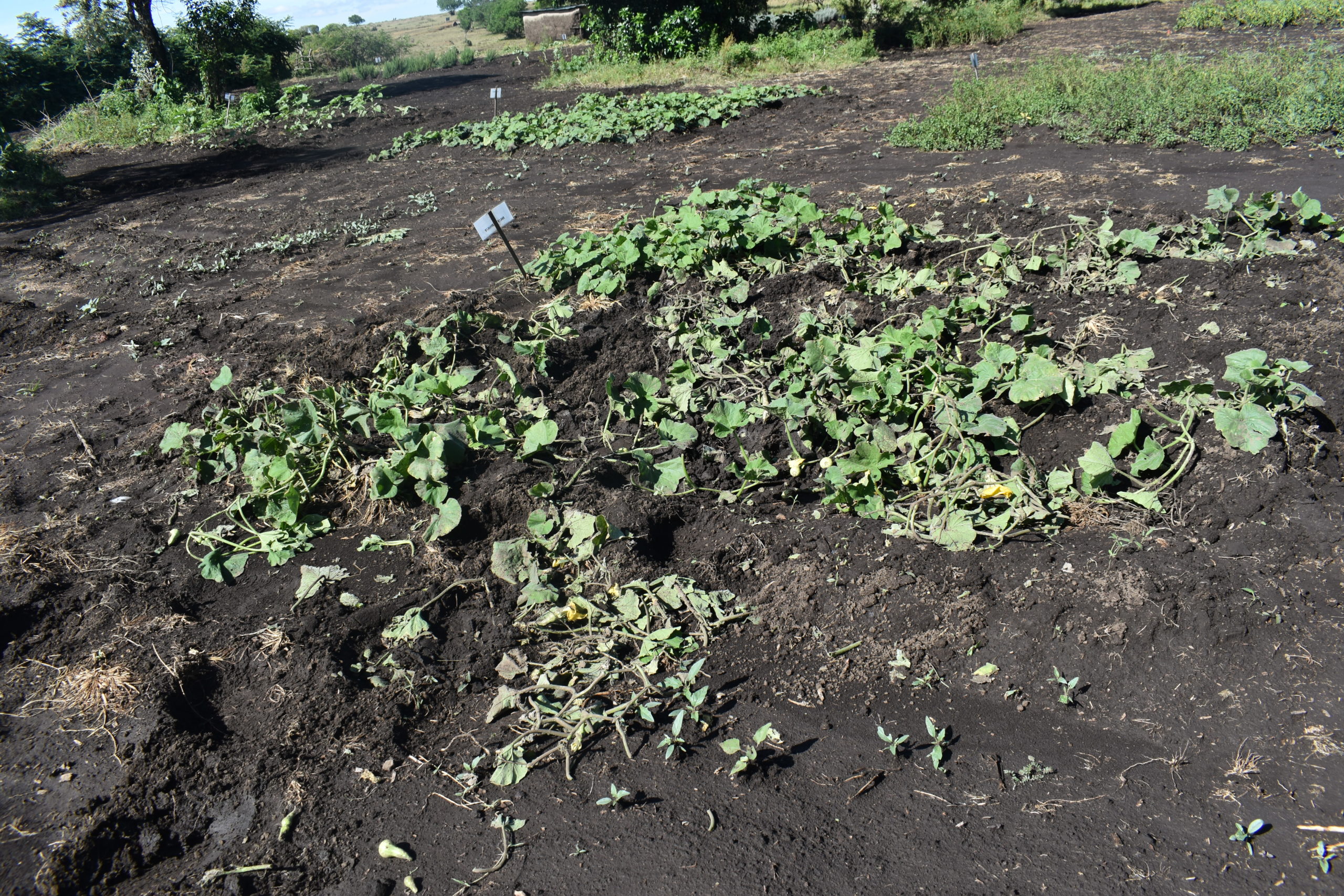
The farm also employed two more workers, a cook and a farm worker, helping the team with organic farming and good crop management practices. We’ve never had any luck growing gooseberries on the farm, which are a wild fruit in these parts of the Mara, because of the vervet monkeys, which previously has left us with almost zero to harvest. In April however, we were lucky to harvest a few kilograms and we took advantage of that and spent an afternoon making marmalade. A valuable exercise for the farm staff to learn value addition. Once we add more capacity, we plan to conduct a market study on the varies products that can come from gooseberries and how marketable it can be in Kenya.
Mara Elephant Project was featured on an April episode of Wildlife Warriors, which aired in Kenya. Thank you to Wildlife Direct and Paula Kahumbu for visiting MEP and featuring our work. We celebrated Earth Day on April 22 by highlighting the training and recruitment of new and existing MEP staff tasked with protecting the planet’s wildlife and wild spaces. Thank you to everyone who supported Mara Elephant Project in April. Our loyal supporter Lori Price continued her commitment to MEP rangers with her annual support for the two Loita Forest ranger teams. Thank you to all of the photographers who supported MEP with their April entries in the Greatest Maasai Mara photo competition sponsored by Angama Foundation.
An April entry from Subi Sridharan.


